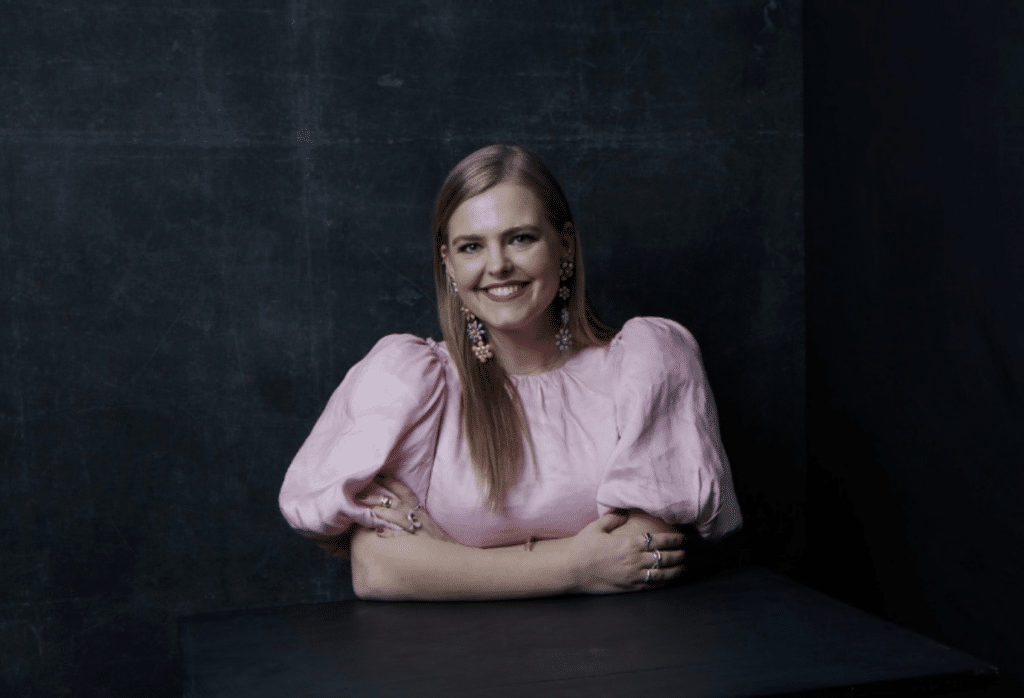The “anti-hustle movement” has gained traction in recent years, inspiring followers who are deciding to turn their backs on the perpetual motion of 24/7 work culture.
For Matilda Coy, the importance of the movement lies in its implicit rejection of a culture that expects women to overachieve.
“Society places so much pressure on women [to work] that our mental health is inherently affected,” she tells Women’s Agenda.
“Statistically, we get that extra degree to feel valid (and as someone with two degrees…and then some, this irony is not lost on me). We hustle and sacrifice—knowingly or unknowingly—just to get a seat at the table, and often, that table isn’t even in the boardroom. We support, survive, and strategise every day.”
Coy, who recently completed a Masters Degree in Creative Intelligence and Strategic Innovation, said she is tired of the expectation that women need to ‘hustle’.
“The experience of womanhood is immeasurable. The additional imbalance and psychological weight we carry are already enough—add hustle on top, and we’re set to burn out,” Coy says.
As a former casualty of burnout, Coy has spent the last few years trying to connect women with a community that isn’t about professional networking, but instead about connecting and supporting each other as we are.
In 2017, Coy’s friend Georgie passed away after a battle with depression. Coy has since established a women-only community group in honour of her friend. The organisation aims to exist outside patriarchal system and focus on stepping away from hustle.
The Georgie Collective is the result of Coy’s years of working to understand the nuances and complexities of the female experience. It is her way of honouring her friend’s legacy by creating a supportive environment for women to truly and safely be themselves.
“I’m building this community as a testament to Georgie’s legacy and to make other women feel the way she used to make me feel,” Coy explained.
“There are amazing female-only communities that will teach you the most effective strategies to hustle, help you get that pay raise, and show you how to be assertive leaders — but that’s not us.”
“We are here to connect women and work toward mitigating mental risk through the community. Plus, we’re going to have some fun along the way.”
Coy described her late friend as “powerful, funny, and supportive.”
“I named my organisation after my best friend [and] I believe this motivation is what makes us unique—it’s built from vulnerability and motivated by love,” she explained.
This Thursday, the Collective is throwing a circuit breaker event in Sydney for women, trans women and non-binary individuals to meet and make connections.
The evening will be loosely structured around an “anti-small talk” attitude — Coy believes that small talk is one of the most common barriers to making connections.
“It’s nerve-wracking, and without even realising it, you start recycling the same rehearsed questions: “What do you do for work?”
“As I’ve mentioned, this can be really isolating for those who have taken time off, chosen not to work, have experienced burnout, or simply don’t want to be defined by their job. So, we’re removing that step from the conversation, in a fun and safe space.”
Running the collective hasn’t been easy. For Coy, who self-identifies as a “neuro-spicy Queen”, the process has been lonely and exhausting.
“There’s a level of risk that’s scary, and at times, it’s overwhelming,” she admits. “I’ve also built an organisation that I care so deeply about, and that in itself makes it emotionally exhausting.”
“I miss Georgie every day, and talking about her and her impact on me makes me miss her even more. I’d be lying if I said I hadn’t thought about quitting or putting it on pause, but then I come back to the idea that if this community helps just one woman feel valid, seen, and heard, then it’s all worth it.”
She is keen to see more female-run initiatives aiming to help women’s mental wellbeing.
“You’re never going to be 100 per cent ready, so get comfortable with aiming for 70 per cent,” she explained.
“Ask for help and support because no one has it all figured out. This is something I struggle with, so if you want advice or want to collaborate on a project, please don’t hesitate to reach out. We Queens need to support one another.”

